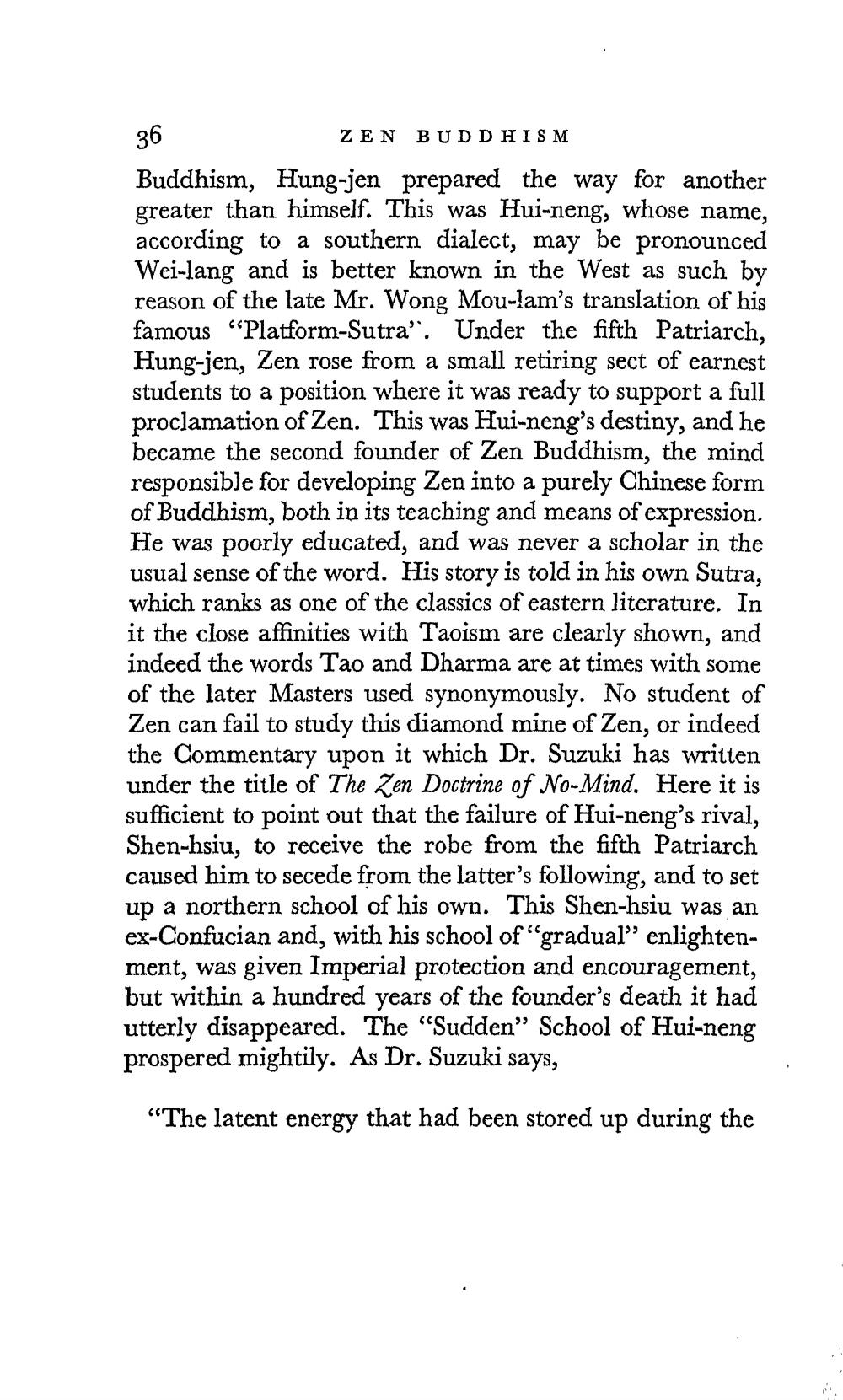________________
36
ZEN BUDDHISM Buddhism, Hung-jen prepared the way for another greater than himself. This was Hui-neng, whose name, according to a southern dialect, may be pronounced Wei-lang and is better known in the West as such by reason of the late Mr. Wong Mou-lam's translation of his famous “Platform-Sutra". Under the fifth Patriarch, Hung-jen, Zen rose from a small retiring sect of earnest students to a position where it was ready to support a full proclamation of Zen. This was Hui-neng's destiny, and he became the second founder of Zen Buddhism, the mind responsible for developing Zen into a purely Chinese form of Buddhism, both in its teaching and means of expression. He was poorly educated, and was never a scholar in the usual sense of the word. His story is told in his own Sutra, which ranks as one of the classics of eastern literature. In it the close affinities with Taoism are clearly shown, and indeed the words Tao and Dharma are at times with some of the later Masters used synonymously. No student of Zen can fail to study this diamond mine of Zen, or indeed the Commentary upon it which Dr. Suzuki has written under the title of The Zen Doctrine of No-Mind. Here it is sufficient to point out that the failure of Hui-neng's rival, Shen-hsiu, to receive the robe from the fifth Patriarch caused him to secede from the latter's following, and to set up a northern school of his own. This Shen-hsiu was an ex-Confucian and, with his school of “gradual” enlightenment, was given Imperial protection and encouragement, but within a hundred years of the founder's death it had utterly disappeared. The "Sudden" School of Hui-neng prospered mightily. As Dr. Suzuki says,
“The latent energy that had been stored up during the




